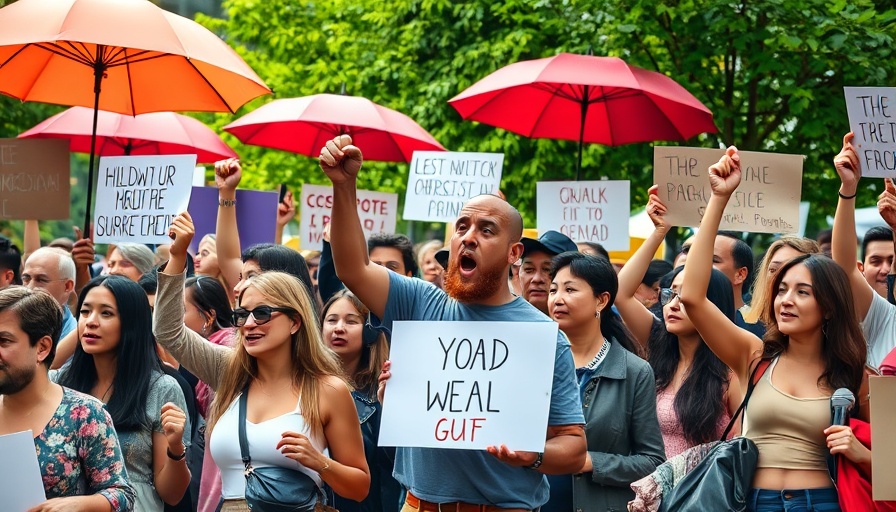
Deepfakes Disrupt Philippine Politics
In a rapidly changing political landscape, deepfakes are increasingly becoming tools for manipulation and advocacy in the Philippines. The controversial technology allows for the creation of highly realistic fake videos, which politicians are now utilizing to either bolster their positions or undermine opponents. The situation escalated recently surrounding the impeachment of Vice President Sara Duterte, with both sides leveraging AI-generated content to sway public opinion.
Virtual Advocacy: A Double-Edged Sword
Last week, supporters of Vice President Duterte circulated a viral deepfake video featuring AI-generated characters condemning her impeachment as a politically motivated act. However, this use of misleading technology drew sharp criticism from various political circles, including Duterte's own press office, highlighting the ethical dilemmas associated with portraying misinformation as fact.
Despite the backlash, Senator Ronald dela Rosa, who shared the video, defended his actions, arguing that the point it raised about political motivations was valid, regardless of AI's involvement. This highlights how the boundaries of acceptable political discourse are shifting as technology converges with traditional methods of communication.
Historical Context: The Role of Technology in Politics
This isn't the first instance of deepfake technology creating ripples in the political arena. Just last year, an AI-generated video falsely depicting President Ferdinand Marcos Jr. engaged in illegal activities went viral. Such incidents raise alarming questions about the integrity of political discourse in an age where misinformation can spread with the click of a button.
Globally, the embrace of AI in political campaigns is becoming widespread. From the Trump campaign's fantastical images to the broader landscape in Asia, deepfake technology serves as both a weapon and shield within political campaigns, complicating the fight for truthful representation.
The Future of AI in Politics: Trends and Implications
As this technology evolves, its implications for political processes and public trust are profound. The intentional spread of deepfake videos can lead to a decreased faith in authentic narratives, potentially skewing public perception and voter behaviors. Future predictions suggest an escalation in the use of these technologies, leading to greater regulatory scrutiny and calls for ethical guidelines.
Practical Insights: Navigating an Era of Misinformation
Business professionals navigating this tumultuous political environment should approach news consumption with a critical eye. Understanding the tools that drive misinformation can aid in discerning fact from fiction. Furthermore, as businesses increasingly engage with politics through CSR or lobbying, awareness of how such technologies may influence public opinion becomes essential.
Conclusion
Deepfakes are not just a technological curiosity; they represent a significant evolution in how political battles are fought and perceived. By staying informed and discerning, professionals can better navigate the complex intersections between technology, politics, and public discourse. It’s crucial to foster discussions, establish firm guidelines, and ensure transparency to preserve the integrity of democratic processes.
 Add Row
Add Row  Add
Add 



Write A Comment